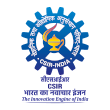Providing pure drinking water with TERAFIL
Providing pure drinking water with TERAFIL
 After completing his Post Graduation from the Central Institute of Plastics Engineering & Technology (CIPET) in 1989, J. Chandrasekaran worked in plastics and engineering companies for twenty years. In 2009, Chandrasekaran received a call from Dr S. K. Nayak, his former CIPET teacher, who had become the Director-General of CIPET (now Central Institute of Petrochemicals Engineering & Technology). Dr S.K. Nayak invited Chandrasekaran and a few industrialists to attend a technology demonstration at CIPET. Although Chandrasekaran had worked in industries, he was not an industrialist. So, he was a bit unsure, but he wanted to ‘obey’ his Guru’s orders. So, Chandrasekaran visited CIPET.
After completing his Post Graduation from the Central Institute of Plastics Engineering & Technology (CIPET) in 1989, J. Chandrasekaran worked in plastics and engineering companies for twenty years. In 2009, Chandrasekaran received a call from Dr S. K. Nayak, his former CIPET teacher, who had become the Director-General of CIPET (now Central Institute of Petrochemicals Engineering & Technology). Dr S.K. Nayak invited Chandrasekaran and a few industrialists to attend a technology demonstration at CIPET. Although Chandrasekaran had worked in industries, he was not an industrialist. So, he was a bit unsure, but he wanted to ‘obey’ his Guru’s orders. So, Chandrasekaran visited CIPET.
The visit changed Chandrasekaran's life. It also enabled him to touch the lives of lakhs of Indians.
On that day in CIPET, scientists from the CSIR-Institute of Minerals and Materials Technology (CSIR-IMMT), Bhubaneswar, presented to the assembled industrialists, TERAFIL, a low-cost technology to purify water. The scientists explained and demonstrated how TERAFIL purifies both surface and groundwater at a minimal cost.
 What makes the TERAFIL technology a low-cost one is its easily available ingredients and the simple process to make the filters. The three major ingredients for the filter are pottery clay, sand and wood sawdust. These are mixed into ’dough’ from which disc, brick and candle-shaped water filters are cast.
What makes the TERAFIL technology a low-cost one is its easily available ingredients and the simple process to make the filters. The three major ingredients for the filter are pottery clay, sand and wood sawdust. These are mixed into ’dough’ from which disc, brick and candle-shaped water filters are cast.
The filters are then dried and heated at very high temperatures. As one can imagine, at a high temperature, the wooden sawdust embedded in the filters burn away, resulting in pores in what now becomes the TERAFIL filter. These pores are separated from each other by thin semi-permeable clay walls. The clay wall contains a large number of ultra-fine capillary openings that allow water to permeate while trapping the pathogens and heavy metals like iron. The cost of water purification is just about three paise per litre.
 However, most of the industrialists present in CIPET on that day were not very enthusiastic about the low-cost technology. The more common RO water technology that catered to the urban population offered higher returns. The proposition of a low-cost filter to be sold in rural areas for marginal returns did not appeal to them, except Chandrasekaran.
However, most of the industrialists present in CIPET on that day were not very enthusiastic about the low-cost technology. The more common RO water technology that catered to the urban population offered higher returns. The proposition of a low-cost filter to be sold in rural areas for marginal returns did not appeal to them, except Chandrasekaran.
Hailing from a village in Tamil Nadu and having travelled widely in the state, Chandrasekaran knew first-hand about the poor water quality in the rural areas. Even today, water in many rural areas is highly turbid and contaminated with bacteria such as Vibrio, Salmonella, and Shigella that cause cholera and dysentery. It also contains disease-causing protozoa and other microbes like guinea, round, hook and tapeworms.
In the CIPET hall, perhaps sensing the uncertainty prevailing in the minds of those present, the CIPET Director-General suddenly announced that his former student Chandrasekaran would take up the CSIR-IMMT technology and scale it up. Chandrasekaran was caught off-guard. But his heart warmed at his former teacher's trust in him. Moreover, Chandrasekaran recognized the enormous potential that the TERAFIL technology held.
The next day, Chandrasekaran gave up his job. He underwent training at CSIR-IMMT where he was taught the finer process of making TERAFILs. Soon, he licensed the TERAFIL technology from CSIR-IMMT. And he set out to manufacture TERAFIL water filters.
And manufacture, he did. It is not just Chandrasekaran who has obtained licenses from CSIR-IMMT. In fact, CSIR-IMMT has to date licensed the TERAFIL technology to more than 120 MSMEs, NGOs and other government agencies. Today, there are over 3.0 lakh units of domestic filters and 50,000 units of community filters installed in rural and urban areas based on the TERAFIL technology.

Other than the low-cost of purchase, the maintenance cost of TERAFIL is also minimal. The life of the inexpensive filter is a good three years, sometimes even longer. With use, the filter surface does get clogged, but all that is required is periodic scrubbing, and the TERAFIL rejuvenates the flow rate. If bacterial contamination is suspected, mild chlorination would make the water 100% bacteria-free.
It is estimated that 60 million litres of affordable & safe drinking water are produced every day using CSIR-IMMT's TERAFIL technology. In the last five years, CSIR-IMMT has transferred the technology to 18 MSMEs across India and has provided training to the licensees.
Chandrasekaran went on to set up Watsan Envirotech Pvt. Ltd., the leading producer of TERAFIL based filters. Today, he is a man with a mission. His mission is to provide clean drinking water and sanitation. He has also taken TERAFIL beyond India's shores and has found worldwide acclaim for his dedication to providing clean drinking water. Apart from that he has developed add-ons to remove arsenic and fluoride from the water, along with TERAFIL.
TERAFIL is yet another CSIR technology that has turned an employee into an employer, generated jobs and most importantly, touched lives.

 Pensioners Corner
Pensioners Corner Screen Reader Access
Screen Reader Access Skip to main content
Skip to main content

























